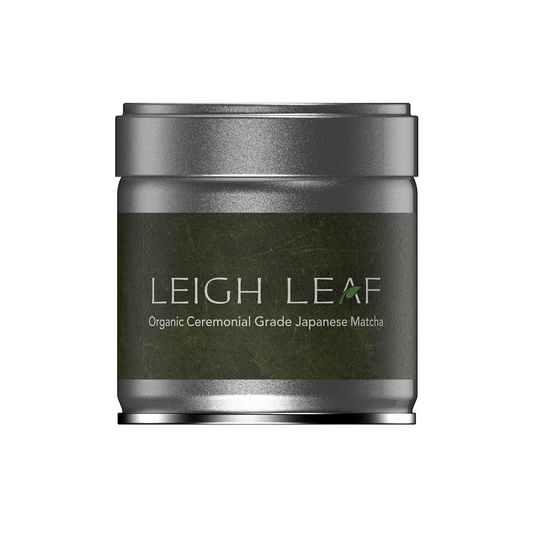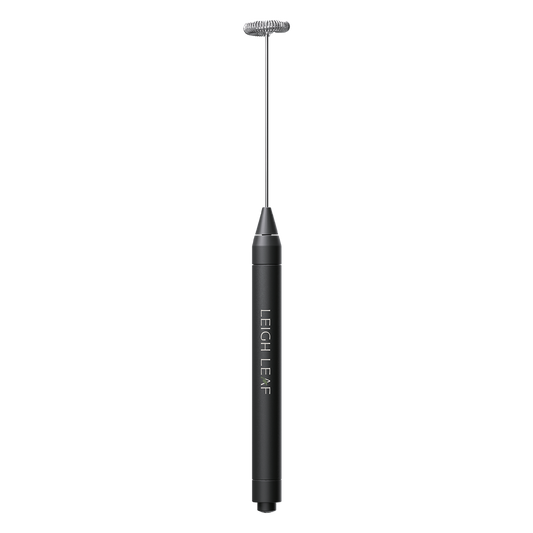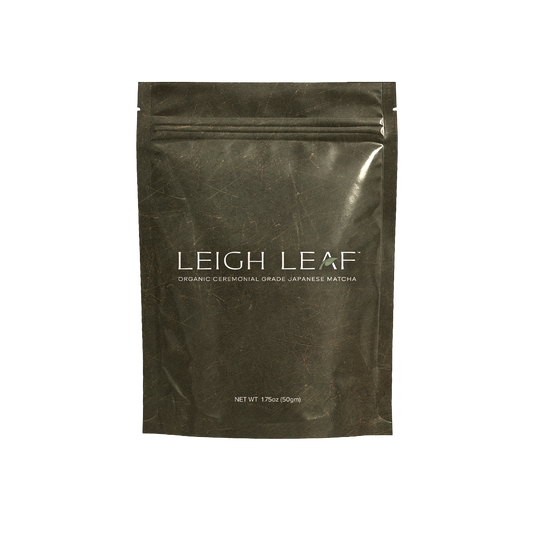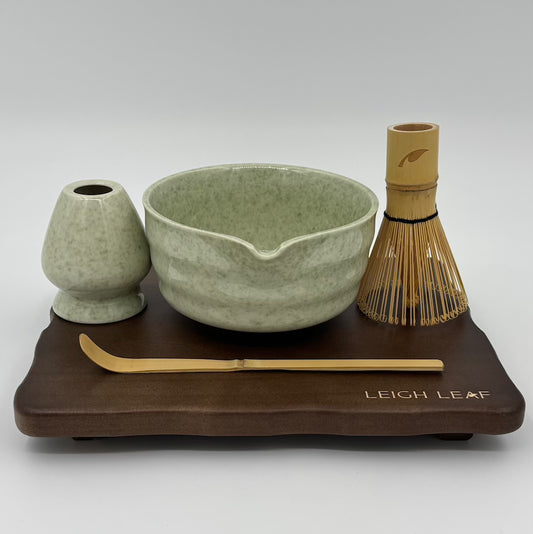
What Are the Differences Between Matcha and Sencha?
Share
Tea enthusiasts often find themselves caught in the delightful dilemma of choosing between matcha and sencha. These two Japanese teas have distinct characteristics, flavors, and even rituals associated with them. So, let's delve into the world of matcha and sencha to uncover the differences and help you make an informed choice.
What is Sencha?
Sencha, a staple in Japanese households, is a green tea that undergoes a unique process. Sencha’s tea leaves are grown under the sun, distinguishing it from other green teas. This exposure to sunlight gives Sencha its vibrant green color and a distinctive, grassy flavor.
What is Matcha?
In contrast, matcha is a powdered green tea with a rich history rooted in Japanese tea ceremonies. A shade is applied to the tea plants for about 20-30 days before harvesting. The shading enhances the chlorophyll content in the leaves, giving matcha its vibrant green color. As a result, the leaves are ground into a fine powder, creating ceremonial matcha, which is revered for its intense flavor.
Powder vs Loose Leaf Tea
One of the most apparent distinctions lies in their physical form. You consume the entire leaf of tea when you consume matcha, which is a finely ground powder. On the other hand, sencha comes in loose leaf form, requiring steeping and straining before enjoying. This distinction significantly impacts their taste and brewing methods.
Growing of Sencha vs Matcha
The growth conditions of tea plants play a crucial role in determining the final product. Sencha thrives under direct sunlight, absorbing the full spectrum of natural light. This process imparts a refreshing, slightly astringent taste to Sencha. Quality Matcha powder, however, benefits from the partial shading that enhances the leaves' flavor complexity, resulting in a more nuanced taste profile.
Harvesting and Processing
The timing of harvesting and processing methods further differentiates these teas. Sencha is typically harvested during the first or second flush when the new, tender leaves are plucked. The leaves undergo steaming, rolling, and drying processes, preserving their green color and natural aroma. Matcha, in contrast, involves a meticulous shading period, plucking, steaming, drying, and stone grinding. This intricate process imparts a smooth, creamy texture to organic matcha.
Health Benefits of Matcha
Beyond flavor, matcha boasts numerous health benefits. The entire tea leaf consumption provides a concentrated dose of antioxidants, particularly catechins like EGCG. Matcha has been associated with improved metabolism, enhanced focus, and a potential boost in energy without the jittery side effects often linked to coffee.
Health Benefits of Sencha
Sencha, while also rich in antioxidants, offers a different set of health benefits. Its catechin content contributes to immune system support and heart health. Additionally, the presence of L-theanine in sencha promotes relaxation and mental clarity, balancing the stimulating effects of caffeine.
Matcha is More Expensive than Sencha
The meticulous cultivation and production processes contribute to Matcha's higher price tag compared to Sencha's. The shading, handpicking, and stone grinding require more labor and time, elevating the overall cost. However, many enthusiasts find the unique qualities of matcha justify the investment.
Taste and Color
The taste and color of these teas are perhaps the most subjective aspects of the comparison. Matcha, with its velvety texture and umami notes, offers a more robust and concentrated flavor. A vibrant green color also adds to matcha's appeal. Sencha, on the other hand, delivers a milder taste, often described as grassy or vegetal, and exhibits a more traditional green hue.
What's the Difference Between Sencha and Matcha?
The primary distinction lies in the preparation and consumption. Matcha is whisked into a frothy concoction, traditionally using a bamboo whisk, while sencha involves the ritual of steeping loose leaves. The experience of sipping on matcha is immersive, involving all the senses, whereas Sencha offers a more straightforward and casual tea-drinking experience.
Matcha vs. Sencha History
Understanding the history of these teas adds depth to the appreciation of their nuances. Sencha has a long-standing tradition in Japan, evolving over centuries to become a daily indulgence. Matcha, on the other hand, traces its roots to Chinese tea culture and gained prominence in Japan during the Zen Buddhist rituals of the 12th century. Japanese tea culture has incorporated the ceremonial preparation of matcha.
Which One Should You Choose Between Sencha vs Matcha?
The choice between sencha and matcha comes down to personal preference and the experience you desire. If you seek a serene, meditative ritual with a bold flavor, matcha is the ideal choice. On the contrary, if you prefer a casual tea-drinking experience with a milder taste, sencha fits the bill. Experimenting with both allows you to appreciate the unique charms each tea brings to the cup.
Can You Buy Matcha Online?
You can buy matcha online from the most trusted brands, like Leigh Leaf. Uncovering the best matcha online is of utmost importance, and opting for trusted brands ensures a pleasurable matcha experience. Our Ceremonial Grade matcha complies with stringent quality standards, supplying top-notch organic matcha powder. Delight in the richness of organic matcha tea with our Matcha powder.
Conclusion
In conclusion, the choice between matcha and sencha transcends mere preference; it's an exploration of culture, history, and personal connection. Each sip unravels a story, inviting you to appreciate the subtle yet profound differences between these two Japanese teas. So, whether you find solace in the whisking of matcha or the simplicity of sencha, the journey into the world of tea is a tale worth savoring.
If you have additional questions about matcha, feel free to delve into the Leigh Leaf blog section for comprehensive information. Should you require further assistance, don't hesitate to reach out to our expert support team via our contact form.
Frequently Asked Questions
What Are The Differences Between Matcha and Sencha?
The differences extend beyond taste to encompass the entire tea-drinking experience. From cultivation methods to preparation rituals, matcha and sencha offer distinct journeys for tea enthusiasts.
Which Tea Has More Health Benefits, Sencha or Matcha?
Both sencha and matcha boast health benefits, but the concentration and types of antioxidants differ. Matcha's entire leaf consumption provides higher levels of catechins, while sencha's L-theanine content offers a calming effect.
What is the Taste Difference Between Sencha and Matcha?
The taste difference is substantial. Matcha, with its concentrated flavor and velvety texture, offers a robust experience. Sencha, with a milder, grassy taste, provides a more traditional green tea experience.
Can Sencha and Matcha Be Blended Together?
While unconventional, blending sencha and matcha can create a unique flavor profile, combining the best of both worlds. Experimentation with ratios allows for a customized tea blend.
Is Sencha or Matcha Better for Weight Loss?
There is evidence that both teas can contribute to weight loss, but matcha's catechin content, particularly EGCG, is thought to increase metabolism and fat burning. However, individual factors and overall lifestyle play a crucial role.
What are the Unique Qualities of Sencha and Matcha Respectively?
Sencha's unique qualities lie in its refreshing, grassy taste and the calming effects of L-theanine. Matcha, with its vibrant green color, concentrated flavor, and ceremonial preparation, offers a sensory and meditative experience.




